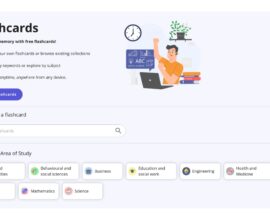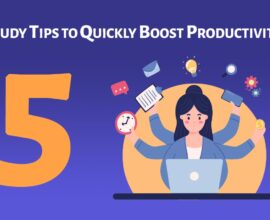Improve Concentration and Supercharge Your Brain With These Simple Tips
Finding your attention span slipping a little? Is it harder to focus than it used to be? Looking for ways to really make the most of your study? Maybe you want to improve your memory!
Uni life comes with a period of adjustment, and it’s totally normal to feel challenged as you’re working out how to balance your new work/study cycle alongside everyday life. Fortunately, because so many students have gone through the same thing, we’ve assembled a list of our ten favourite tips for boosting your brain function. Try utilising these quick and easy tips below, and you’ll have Jedi-like focus in no time:
1. Brain Training for Brain Health
Certain activities can train your brain cells into improved concentration.
Puzzles, particularly the ones commonly found in the newspaper (yes, like your dad reads) like crosswords and Sudoku are like lifting weights for your brain. They can also help prevent cognitive decline in later years. These days, you don’t need to scan the back pages of the paper for puzzles. Sudoku and cryptic crossword apps are available for both Apple and Android devices.
Think of them as brain exercises to improve mental function. Research shows that even fifteen minutes per day can have a huge impact on your concentration span.
This will also help to enhance memory and problem-solving ability. Win-win!
2. Game Time
Don’t go overboard here, but it turns out World of Warcraft might have been doing you some good, after all.
Peer-reviewed studies from 2018 indicated that playing video games in moderation – about an hour, max, per day – can improve your concentration, hand-eye coordination, social cognition skills and brain focus.
More specifically, playing games can help improve your ability to focus on a single task amidst distractions around you.
Your attention span and ability to focus can actually benefit from short, regular gaming sessions.
Be aware, however, that overexposure to games, with constant stimulation, can have the reverse effect and decimate your attention span and lead to memory decline. The trick, like with many things, is moderation.
3. Exercise
It should come as no surprise to you that physical exercise is good for you. Did you know, however, that daily activity can boost your concentration and focus within only four weeks?
All you need is 30 minutes per day for a month and you’ll enjoy the cognitive benefits. Regular exercise reduces your risk of heart disease, type 2 diabetes, and some cancers. It improves not only your cardiovascular health, but your brain health, too, improving executive function, emotional control, and cognition. It can even boost your mood and help with depression and anxiety!
Even moderate and mild physical activity is great for you. Walking is something of a superpower, and regular walks will improve not only your physical but your mental health, too. Exercising also helps with…
4. Sleeping Well Improves Cognitive Function
Sleep deprivation ruins concentration. Remember that rhyme next time you’re tempted by an all-nighter. Medically reviewed studies show that sleep deprivation also increases your levels of stress hormones, damages your mental performance, and can lead to memory loss over time.
The health benefits of getting enough sleep are huge. Exercise will help you to sleep, as will a regular bedtime routine. Avoiding your smartphone at bedtime will massively help you to get to sleep, too. The blue light emitted by your phone screen stops your body from producing melatonin, the hormone that helps you get to sleep. Getting the right amount of sleep will help improve memory, reduce your risk of Alzheimer’s disease, and reduce overall stress levels.
About an hour before bedtime is the absolute latest you should be using screens. This should keep your brain from overstimulation when it’s time to wind down.
Winding down before bed with a nice book and some dim light is the best way to get your body accustomed to a sleep routine. You want to get eight to nine hours per night, every night. Do this, and after a few weeks, you’ll feel your mental sharpness improve.
5. Eat Brain Food
Certain foods are great for your cognitive function. The human brain is made to thrive on things like whole fruits and veggies, lean meat, nuts, and fish. These are exactly the sort of foods and snacks that will help boost brainpower.
Unless you’re cutting carbs for another reason, healthy carbohydrates, too, are critical to proper cognitive health and brain function.
If you aren’t already, we recommend incorporating fatty fish like salmon, extra virgin olive oil, whole eggs (white and yolk), blueberries, and leafy greens like spinach into your diet, especially in the morning. While you’re at it, be sure to stay hydrated! A well-hydrated brain works far better than a dried-out one.
6. Discover Your Study Prime Time
All of us have a natural biological “prime time” in which we perform at our best. This is the time of day at which you have the most energy, and therefore tend to be the most productive.
If you can work this out, getting things done at this time is the best way to stay attentive, focused, and retain more of the information. Your brain forms more connections between brain cells, and better ones, at prime time.
Basically, to work this out, over about 21 days, chart your energy, focus, and motivation levels at hourly intervals throughout the day. At the end of this time, take note of when these were highest, and be productive at these times. Take note of when these were lowest, and recharge, finding low-effort activities you enjoy doing at these times.
Another option is to work out your sleep chronotype! The natural tendency of your body to sleep at a specific hour (or what most people refer to as being an early bird vs a night owl), is known as a chronotype. Your body’s sleep chronotype affects appetite, exercise, and core body temperature, as well as regulating sleep and wake periods. Working out your natural wake, work, eat and sleep times can give you a helpful boost in working out the best time of day to plan for study.
7. Use Productivity Tools
They say you need three productivity tools to thrive. Classic examples include a task manager (like Todoist or Asana), a calendar (such as Google Calendar or Fantastical), and a note-taker (like OneNote or Evernote).
Apps like Forest (as approved by Forbes magazine) are designed to encourage you to leave your smartphone alone, lowering your distraction levels and boosting your concentration.
An online learning app could help with your next study session, too.
8. Break Big Tasks Down
What’s easier, taking one step or taking a thousand?
Breaking big tasks into bite-sized pieces capitalises on not only your natural rhythms and attention span, but gives you the chance to recover in between study sessions.
It’s easier to get 3000 words written when you do it 300 words at a time. The same goes for concentrating. If you can’t concentrate for longer than a few minutes at a time, that’s OK.
Break the task down into smaller, more manageable increments and it’ll get done steadily and consistently.
9. Ask for Help
There are few better ways to learn than to be taught. If you’re in need of help with your homework, why not ask someone?
You’ll get a break from the inside of your own head, benefit from someone else’s experience, and hopefully pick up some helpful advice, tips and tricks along the way.
A strong support system was the secret ingredient in many successes. Ask your teachers and professors how they can concentrate and stay focused. Approaching the tutor network at your educational institution, whether it be uni or TAFE, is a great move here. You can also try using a Homework Help feature online such as the one offered by Zookal Study.
10. Go Green
A 2014 study indicated that including plants in offices helped boost productivity and concentration.
The presence of plants also improved air quality and workplace satisfaction! If you can, get an indoor plant for your study space.
Better yet, go for a walk in your local park, or if you’re lucky enough to have nature nearby, take regular bushwalks.
Human beings evolved to live outside, among the plants and the trees. Even sitting in a park or your garden for as few as 20 minutes can be great for your overall wellbeing, concentration included.
Conclusion
We hope this list has been helpful to you! Try these tips and find a combination that works best for you. Whether that means taking up puzzles, memory-based games like flash cards, regular nature time or just drinking more water, this list should have a study tip for everyone.
Remember to ask for homework help when you need it, and take advantage of the productivity and online learning apps if that’s your thing.






